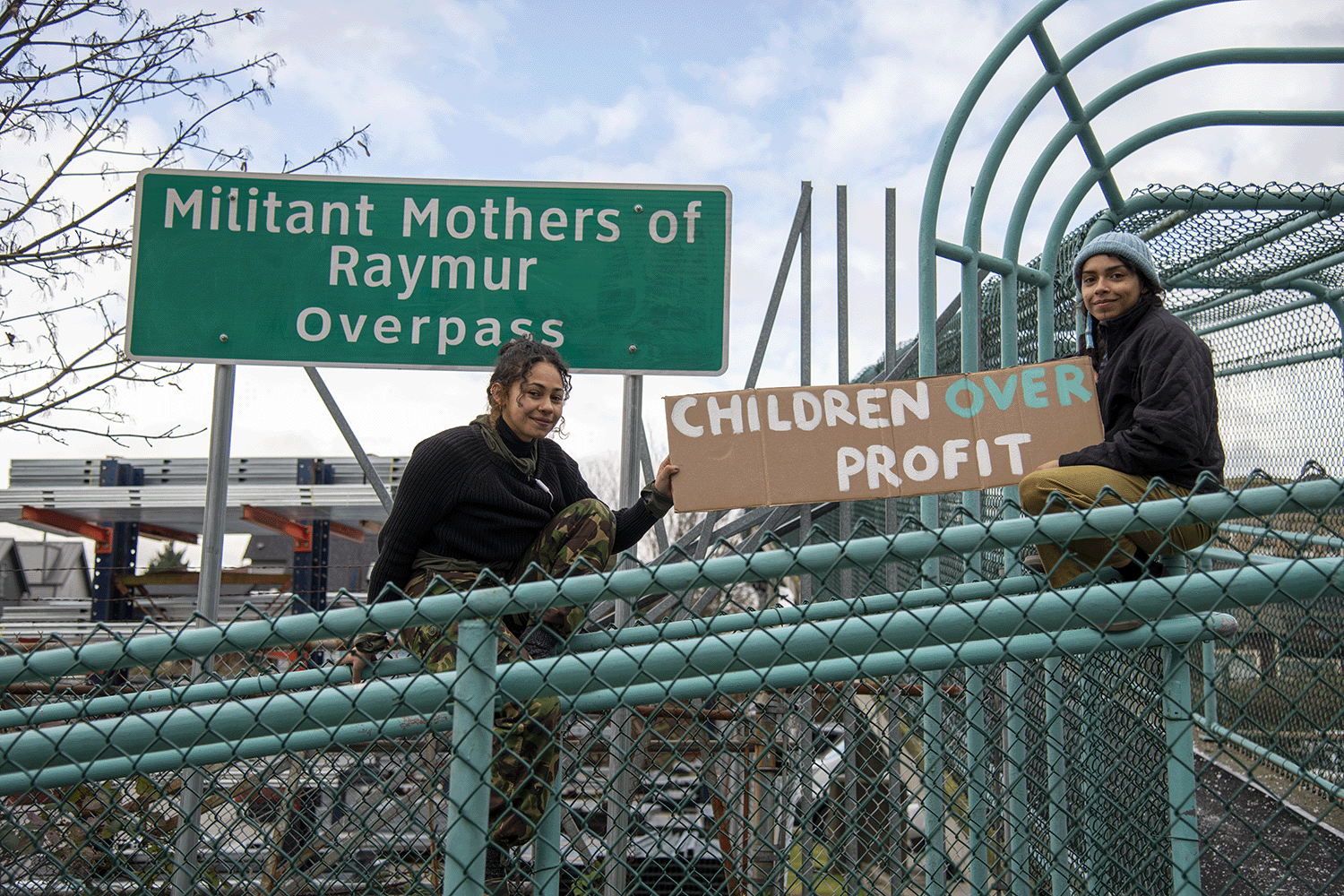Lexi Mellish Mingo + Karmella Cen Benedito De Barros

Lexi Mellish Mingo is a multimedia artist and performer, exploring the intersections of storytelling through film, writing, and movement. Her work is inspired by the complexity of diasporic experiences, and the process of decolonizing identity through artistic practice. With movement as a muse and motif, Lexi challenges the stagnancy of traditional narratives by centering activism to facilitate dialogue on a decolonial future.
Karmella Cen Benedito De Barros is a queer, inner-city Nêhiyaw and Afro-Brazilian Cafuzo. Born and raised in diaspora as a guest on the unceded Squamish, Tsleil-Waututh and Musqueam territories, she is currently a Youth Outreach Worker and member of the Room Magazine Editorial Team. Karmella is also working as the Indigenous Brilliance Community Engagement leader who coordinates the Indigenous Brilliance reading series, a collaborative series between Room Magazine and Massy Books, celebrating Indigenous women/2SQ storytellers. Her own artistry is multidisciplinary, grounded in honouring and witnessing the beauty of her environment and communities. Karmella’s most recent work was featured in the Festival Of Recorded Movement 2020, and Room Magazine issue 44.1. You can find her on Instagram @kc.bdb
Artist’s Statement
On January 27th, 1971 a group of mothers from the Raymur housing project rallied together in protest, advocating for an overpass that would cross over the train tracks between the housing complex and the elementary school. This protest was in response to months of neglect and dismissal from the City and Railway organizations who neglected to take any action in response to the Mother’s petitions, letters, and phone calls. What began as a simple request for the trains to run outside of the hours that children commuted to school, became a front-line battle for an overpass to be installed for the children’s guaranteed safety.
The City had made multiple promises to put in an overpass to ensure the safety of the children, but there was no immediacy or action. In March of 1971, a second blockade took place for two nights and three days, where the mothers set up tents on the train tracks. This led to a case at City Hall, where the “Militant Mothers” argued their case and fought off the injunctions. Months later, their demands were met with a pedestrian overpass, originally named Keefer Street Rail Overpass
In 2019 the City of Vancouver officially changed the name of the bridge from the Keefer Street Pedestrian Overpass to the Militant Mothers of Raymur Overpass in honor of these women.
We have chosen to engage with the Militant Mothers Overpass because it is a physical manifestation of the protests by the Raymur mothers of Strathcona, who blocked the railway so that their children could get to school safely. This speaks to us as young mixed-race Black folks who are working to establish a meaningful connection to not only the unseeded territories of the Squamish, Tsleil Waututh, and Musqueam Nations. But also to the historical neighborhood of Hogan’s Alley / Strathcona, where people who looked like us would have communed and lived together before the major gentrification of this neighborhood.
For this project, we held the intention of embodying the playful energy of the children who were protected by the bravery of the Militant Mother’s protest. Climbing the walls of the bright blue overpass, we hope to share a history of uplifting children in the community and prioritizing children over profit.
Links
Room Magazine: Co-Written Article
Organization website: F-O-R-M Movement Festival
CBC: Militant Mothers of Raymur protest